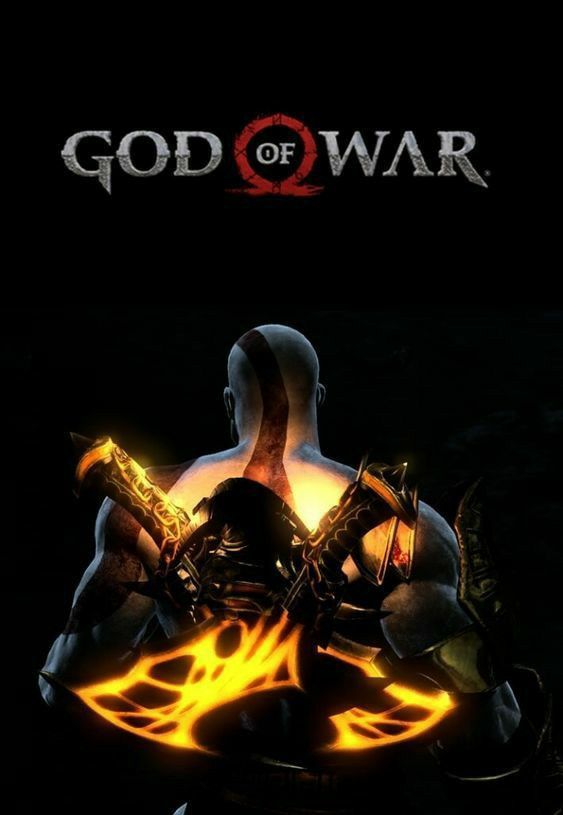God of War is a name that has become synonymous with action-packed gameplay, gripping storytelling, and high-octane combat. Since its inception in 2005, the series has taken gamers on an epic journey through ancient Greece and beyond, battling gods and monsters along the way. With its latest release in 2018, God of War has once again redefined what it means to be an action game. In this blog post, we’ll explore the origins of God of War, its innovative gameplay mechanics, compelling storyline and why it’s such an important addition to the gaming world. So sit back as we delve into one of the most iconic franchises in video game history!
The Origins of God of War
God of War was developed by Santa Monica Studio and released in 2005 for the PlayStation 2. The game’s director, David Jaffe, wanted to create a character-driven action game that would be different from other games in the genre. He envisioned a protagonist who was not just physically strong but had emotional depth as well.
Inspired by Greek mythology, Jaffe created Kratos, a Spartan warrior seeking revenge against the gods who betrayed him. The game’s storyline draws heavily from Greek mythology and features appearances from iconic characters such as Zeus, Athena and Ares.
One unique aspect of God of War is its use of quick-time events (QTEs) during combat sequences. These allow players to perform cinematic finishing moves on enemies or solve puzzles using timed button presses.
The success of God of War led to several sequels and spin-offs across multiple platforms including PlayStation Portable and PlayStation 3. Each installment built upon the gameplay mechanics introduced in the original while expanding upon Kratos’ story.
God of War stands out as one of the most innovative action games ever made thanks to its emphasis on storytelling, unique gameplay mechanics and memorable characters based on ancient mythology.
The Gameplay of God of War
The gameplay of God of War is a significant aspect that makes the game stand out from other titles in the action genre. The game mechanics are intuitive and easy to learn, yet challenging enough to keep players engaged.
Kratos’ combat system has been revamped with an over-the-shoulder camera angle, making every encounter feel more immersive and intense. Players can also use Kratos’ Leviathan Axe, which has its own unique move set and can be thrown at enemies for ranged attacks.
In addition to combat, exploration is a key component of the gameplay. Players can solve puzzles, find hidden secrets, and complete side quests throughout their journey through Midgard. This adds another layer of depth to the game’s overall experience.
Another innovative feature is Atreus’ inclusion as a companion character. He provides support in battles by shooting arrows at enemies while simultaneously offering emotional support during Kratos’ personal struggles.
The gameplay of God of War sets it apart from other games in its genre due to its unique blend of exploration and combat mechanics paired with memorable characters like Kratos and Atreus.
The Story of God of War
The story of God of War revolves around Kratos, a Spartan warrior who seeks to take revenge on the gods that have caused him great pain and suffering.
Kratos is haunted by his past which includes killing his own family in a fit of rage, an act he deeply regrets. The game begins with Kratos attempting to end his life, but the gods refuse to let him die.
Instead, they send him on a quest to kill Ares, the god of war himself. Along the way, Kratos encounters various other gods such as Athena and Poseidon who try to stop him from achieving his goal.
As Kratos progresses through the game’s storyline, players get glimpses into his tragic past through flashbacks and cutscenes.
This adds depth and emotional weight to Kratos’ journey as he struggles with his inner demons while fighting off mythical creatures and powerful deities.
God of War’s story is one that blends Greek mythology with themes of redemption and vengeance resulting in an unforgettable gaming experience for players.
The Reception of God of War
The reception of God of War was overwhelmingly positive. Fans and critics alike praised the game for its stunning graphics, engaging gameplay, and emotional story.
Many reviewers noted how the game successfully reinvented the series by moving away from its previous focus on violence and gore, instead placing a greater emphasis on character development and storytelling. The new combat system also received high praise for its depth and flexibility.
God of War’s success can be seen in its numerous awards and accolades. It won Game of the Year at The Game Awards 2018, as well as Best Direction, Best Action/Adventure Game, and Best Audio Design. It also received perfect scores from several publications including IGN, Polygon, and GamesRadar+.
God of War was a critical darling that resonated with both old fans of the series as well as newcomers to Kratos’ world. Its impact on gaming is evident in how it has influenced other games since its release in 2018.
Why God of War is Important
God of War is important because it sets a new standard for action games. It redefines the genre with its innovative gameplay, compelling story, and stunning graphics. With its fresh take on mythology, complex characters, and emotional depth, God of War transcends mere entertainment and becomes an experience that stays with players long after they put down their controllers.
Furthermore, God of War proves that video games can be just as powerful as movies or books when it comes to storytelling. It also shows how important representation is in media – by featuring diverse characters with different backgrounds and personalities.
In conclusion (oops!), God of War is not just another game; it’s a masterpiece that deserves recognition for its contributions to the gaming industry. Whether you’re a fan of action-adventure games or not, you owe it to yourself to play this game at least once – not only will you have fun but also learn something about humanity along the way.

